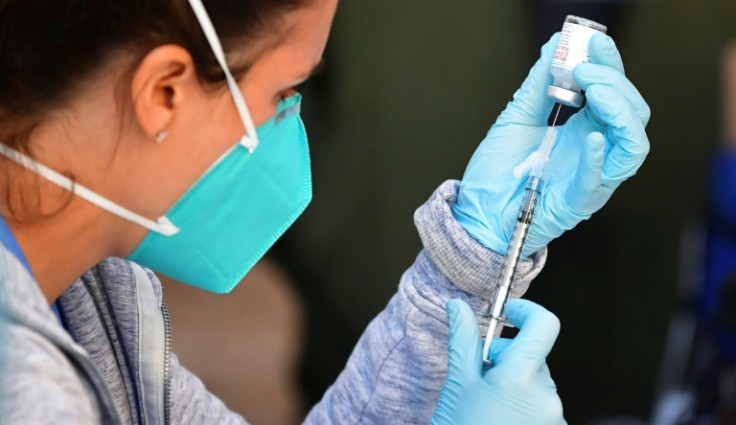
According to Our World in Data, at least 70 per cent of the world's population has received at least one dose of a COVID-19 vaccine.
On the 28 June 2021, the world saw its peak number of vaccinations, measuring at 43.3 million. Today, more than 93 per cent of the UK's population have been given at least their first coronavirus vaccination, Our World in Data reports.
While medical professionals have handed out more than 13.5 billion doses of the vaccine to different individuals across the globe, one 62-year-old man from Germany, has been vaccinated against Covid more than 200 times.
This news comes after the media was accused of using language that "exaggerated" aspects of Covid and for "scaremongering" members of the public, the National Library of Medicine says.
Documented in The Lancet Infectious Diseases journal, the hyper-vaccinated individual went against medical advice and received a staggering 217 doses within a span of 29 months.
Over the past three years, the journal notes that the German national has paid for the shots at private healthcare facilities.
Researchers from the University of Erlangen-Nuremberg have since confirmed that, after receiving the series of vaccinations, the elderly man has suffered no ill effects.
To test for any unknown side effects, medical scientists at the university asked the 62-year-old to provide them with fresh blood and saliva samples.
"We learned about his case via newspaper articles... We then contacted him and invited him to undergo various tests in Erlangen," Dr Kilian Schober, a Microbiology Researcher at the University of Erlangen-Nuremberg, said.
"He was very interested in doing so."
According to the research, Covid vaccinations will not cause infections. Instead, the doses are known for teaching the body to fight the disease – like most vaccination types.
"We were able to take blood samples ourselves when the man received a further vaccination during the study at his own insistence," Dr Schober added.
After the team of researchers had also tested some frozen blood samples, they "were able to use these samples to determine exactly how the immune system reacts to the vaccination."
Dr Schober said that he had expected the repeated dosage to hyper-stimulate the immune system, causing certain cells to be fatigued. Instead, the German national proved the researcher wrong as he presented no evidence of this.
The results also showed that it was unlikely that the man had ever contracted COVID-19.
With insufficient results, on the university's website, the researchers urged: "Importantly, we do not endorse hyper-vaccination as a strategy to enhance adaptive immunity."
"Current research indicates that a three-dose vaccination, coupled with regular top-up vaccines for vulnerable groups, remains the favoured approach."
There is also no "indication that more vaccines are required," the medical scientists continued.
While doctors do not recommend several vaccination shots, medical professionals have criticised the anti-vaccine campaign.
Amid the Covid pandemic, a large number of people refused to get vaccinated, known as "anti-vaxxers".
Dr Cora Constantinescu, a Pediatric Infectious Disease Specialist at the Alberta Children's Hospital in the US, slammed the anti-vaccine movement for endangering others.
"We need more unity to deal with difficult circumstances," Dr Constantinescu said.
"We don't get it when people think that the powerful get to decide and regular people are harmed by those decisions."







